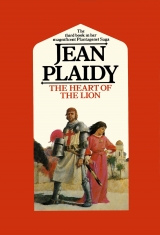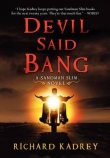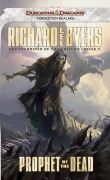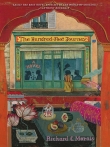
Текст книги "The Heart of the Lion "
Автор книги: Jean Plaidy
сообщить о нарушении
Текущая страница: 22 (всего у книги 22 страниц)
 Chapter XXII
Chapter XXII 
THE CROCK OF GOLD
Richard returned to the Château Gaillard, nostalgic with memories of other days. They would sign their treaty and perhaps when they had done so they would meet in a more friendly fashion; perhaps together they could find a way to a true peace between their countries.
Into the courtyard rode a troop of his soldiers who had come to join him lest he need help against Philip. They would dine together off roast boar, said Richard, which they did.
During the feast the Captain of the guards related a rumour that he had heard. A peasant ploughing the land for his master who was Achard Lord of Chaluz had turned up a wonderful treasure. This was in the form of a great block of gold which had been cut into a group of figures representing an emperor and his family and dated back many years to when the emperor was presumably the ruler of Aquitaine.
‘A figure of gold!’ cried Richard. ‘Why it must be worth a fortune!’
‘It must indeed, Sire, and if one piece were found why should there not be many more?’
Richard was deeply impressed by the story; he asked innumerable questions and in the morning when he arose he announced his intention of going to Chaluz to see the treasure.
Such treasure was surely the property of the sovereign lord, he reasoned, in which case the treasure was his. The thought of augmenting his depleted coffers excited him so much that he had forgotten temporarily the treaty with France. There would be time to sign that later.
He sent a message to Achard to tell him that he was on his way and that he was to guard the treasure until he came to claim it, for Achard would agree that his sovereign rights proclaimed him the owner of it.
He was close to Chaluz when the messenger arrived from Achard to say that the find had been grossly exaggerated. There were no golden figures; all that had been found was a jar of gold coins. The value was not great and Adamar of Limoges, whose vassal Achard was, had already claimed the treasure and had no intention of handing it over to Richard.
Such defiance infuriated Richard. He vowed vengeance on both Achard and Adamar and advanced through Limousin laying waste to the land and pillaging the hamlets.
As he approached the castle of Chaluz, Adamar sent out a messenger to ask Richard to put the dispute before the King of France, for as Duke of Aquitaine and Normandy he was a vassal of that sovereign.
It was a suggestion to arouse Richard’s fury and he went into action against the castle, determined to bring about its destruction.
The defenders pleaded that it was the Lenten season and no time to indulge in a battle for gold.
Richard laughed aloud at that. Give him the treasure, he said, and he would abandon the fight and not before. It was a bitter battle. The castle was not well defended, but both Achard and Adamar knew that if they surrendered they would have to face Richard’s fury. They preferred to die fighting and would not give in.
There was one among them, a certain Bertrand de Gourdon whose home had been destroyed some years before by Richard during the wars in Aquitaine. He had lost his father and brothers in the battle and had hated Richard ever since.
He was ready to fight desperately against the King and had joined Achard for this purpose.
He was in the keep when he saw the King. Richard would always stand out among his men, and Bertrand watched the King take an arrow and shoot it at the keep. It lodged there in the wall close by Bertrand. The King’s arrow! Bertrand reached for it. He fitted it into his bow and let it fly towards the King. It struck Richard below his neck and penetrated under his shoulder blade.
His knights called out in dismay but he shouted that all was well.
The castle had fallen to the King’s men, but the King was in agony.

He lay on his sick bed. He had tried to pull the arrow out and in doing so had broken it. It needed an operation to remove the barb.
The days began to pass and the wound was festering. The pain was agonising. It was with horror that he realised mortification had set in.
This was the end, and he knew it.

Eleanor came to his bedside from Fontevrault, the Abbey where she had been finding a certain peace now that Richard was in command of his kingdom.
Her grief was terrible.
‘It cannot be,’ she cried. ‘Not you . . . not Richard! My beautiful son!’
‘’Tis so, Mother,’ he said. ‘This is the end for me. An arrow shot at Chaluz – and all for the sake of gold treasure which they tell me is very little. I might have died fighting for Jerusalem and they will say of me now that I died fighting for a vessel of gold coins.’
‘They will say of you that you are the bravest soldier of the Cross that ever lived,’ cried Eleanor fiercely. ‘And you are not going to die. You cannot die.’
‘I am mortal, Mother. See how weak I am.’
‘I have seen you weak before with the fever on you, but you always recovered did you not?’
He shook his head. ‘You and I should speak the truth together. We always did and we must do so now. I am dying, Mother. You know it.’
She could not speak, so choked was she with her emotion; she could not look on the beloved face for her eyes were blinded by her tears.
‘Mother,’ he said, ‘what will happen when I am dead? Arthur should have been here. The people should have known him. They would have loved him. The young are so appealing. But his mother refused to allow him to come and now there is only John.’
She could not answer him; she could only think of him in all his youthful beauty – her beloved, her Lion Heart.
‘John is English,’ he said. ‘The English know him. They will accept him as they never would accept Arthur. It must be John, Mother. God help England.’
She clung to his hands; she kissed them.
She said: ‘You see, you must recover, my beloved. What will England do without you? What shall I do without you?’
But she knew, as he did, that there was no point in deluding themselves. The bitter tragic truth must be accepted.
‘Send for the Archbishops and the Bishops,’ said Richard. ‘My brother John must be proclaimed King on my death. It is the only way for peace in the realm.’
There should have been an heir he was thinking.
My poor Berengaria, you should have been the mother of my sons.
‘I will have them brought to you,’ said Eleanor. She rose to her feet.
‘Farewell, my mother,’ he said. ‘There has been much love between us.’
She could not answer him. She wanted to cry out in her misery. She wanted to curse God for taking from her the only one she truly loved.

Richard asked that the man who had shot the fatal arrow be brought to him.
Richard looked at Bertrand de Gourdon steadily and said: ‘What have I done to you that you should slay me?’
‘You slew my father and my two brothers. You would have killed me and all for a pot of gold. I am ready for revenge. Inflict on me what tortures you can contrive. I care not. I have had my reward. I have seen you on your deathbed.’
‘There is a brave man,’ said Richard. ‘Let him go free. I forgive him what he has done to me and I trust he will forgive me what I have done to him. Send my Queen to me.’
He must not die until she came. He wanted to ask her forgiveness. He wanted to convey to her somehow that it was not his dislike of her personally which had kept them apart.
She came – sad and pale, a tragic queen who had rarely known real happiness.
She knelt by his bed and wept.
‘It is farewell,’ he said. ‘Forgive me, Berengaria. I would I could have been a better husband.’
She shook her head and her tears fell on to his hand which she held in hers.
He looked at her sad fair face until his eyes grew glazed and he thought he was on the walls at Acre and that Saladin was beckoning to him.
 WIN A YEAR’S NATIONAL TRUST
WIN A YEAR’S NATIONAL TRUST 
FAMILY MEMBERSHIP
Arrow Books is offering one lucky person the chance to win a year’s National Trust family membership.
Whether you’re interested in gardens, historic castles, wildlife, looking for a new coastal path to walk, or just somewhere peaceful to relax and enjoy a nice cup of tea, National Trust membership gives you a wide variety of things to do, as often as you like, for FREE.
Your membership entitles you to:
• Free entry and parking at over 300 historic houses and gardens
• The Members’ Handbook – with full details of all the places you and your family can visit
• Newsletters packed with details of special events at locations nearby
• Three editions of the National Trust’s beautifully illustrated magazine exclusively for members
• Trust Tracks – a special supplement for families and children
Membership is for two adults and their children or grandchildren under 18. Children under 5 go FREE. See over for Entry Form.

Simply answer the question below by ticking either A, B, or C and send your entry by 31st May 2007 to:
Jean Plaidy Competition, Arrow Marketing Department, Random House, 20 Vauxhall Bridge Road, London SW1V 2SA or enter on line at
www.randomhouse.co.uk
Question:
Jean Plaidy was one of several different pen names used by the English author Eleanor Hibbert. Which of the following did Eleanor also use as a pen name?
A

Victoria Holt
B

Enid Harris
C

Daisy Smith
Answer: ..................................................
Name: .....................................................
Address: ..................................................
..................................................................
..................................................................
Daytime telephone no: ...........................
Email address: .........................................

I would like to receive more information about the novels of Jean Plaidy and other historical novelists

I would like to receive more information on books published by Random House
Please return this coupon to: Jean Plaidy Competition, Arrow Marketing Department, Random House, 20 Vauxhall Bridge Road, London
SWIV 2SA
Jean Plaidy Competition Terms & Conditions
1. This competition is only open to UK residents aged 18 and over except employees of the Random House Group Limited (‘Promoter’), their families and any other company connected with the competition.
2. By entering the Jean Plaidy competition (‘Competition’), you agree to accept and be bound by these terms and conditions.
3. By providing the Promoter with your personal details and answering the question above, you will be automatically entered into the Competition.
4. The closing date of the Competition is 31st May 2007. No entries will be accepted after this date and the Promoter is not responsible for entries lost or delayed in the post.
5. The prize is a year’s National Trust family membership (‘Prize’)
6. Events may occur that render the awarding of Prize impossible due to reasons beyond the control of the Promoter and the Promoter may, at its absolute discretion, vary, amend, suspend or withdraw the Prize with or without notice.
7. The winner will be the first correct entry drawn at random within 7 days after the closing date and will be notified by post by within 6 weeks of the closing date.
8. Your personal details will only be retained and used by the Promoter in relation to the Competition and will not be passed on to any other third parties. If you have ticked the box(es) above your personal details will be retained in order to send you the further information you have indicated you would like to receive.
9. It is a condition of entry that the winner agrees to the use of their name, address and photograph in publicity material.
10. The winner’s name will be available upon submission of a stamped addressed envelope.
11. The Promoter’s decision is final and no correspondence will be entered into in relation to the competition.
12. No cash alternative to the prize will be offered.
13. The Promoter’s contact details are: The Random House Group Ltd, 20 Vauxhall Bridge Road, London SW1V 2SA








